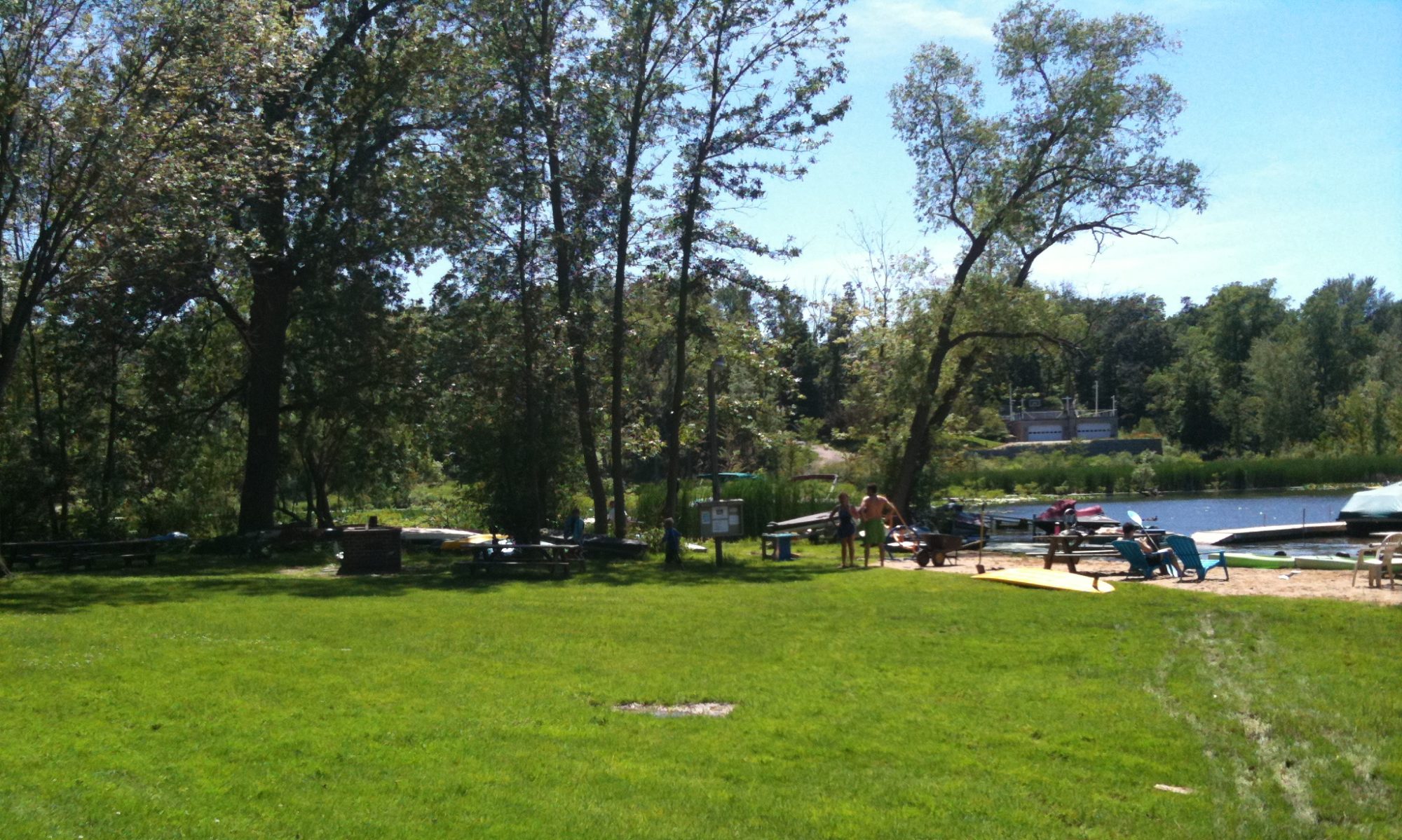ANNOUNCEMENT OF SURPRISE MEETING
It was weeks later that the Grand Rapids Township announced a meeting would be held in which an agreement would be solidified between the GR Twp and the WPA. We learned they decided to form a quiet agreement that gives this select group rights to public land. This had allegedly been formulated through meetings between the WPA lawyer and the GR TWP. To get their private agreement past the public, the Township Board gave only a few days of advance warning for a meeting to be held just prior to the Christmas holiday. The public had little time to spread the news and make plans to attend. Attempts were made to advertize the meeting in a flyer passed to the surrounding neighborhoods.
This meeting was attended by a large number of area residents who voiced strong opinions of dissent. One WPA member attended. Despite unanimous objections by those present, Mr Devries and the board members proceeded to endorse this pre-arranged agreement. (The minutes from this meeting can be viewed on the Grand Rapids Township website.) In short, the resolution effectively provides that the Township will grant exclusive use of the publicly owned Reeds Lake waterfront park to the Woodcliff Park Association. To provide for token “public access” to the John Bonnell Park, the new proposal allows a maximum of 25 non WPA members to pay ten times the WPA annual fee (or five times if a GR-TWP resident) to have member status at the park. For those 25, there are also provisions that they can additionally pay twice what a WPA member pays for a boat slip. In practical terms, only the WPA can use the park.
Somehow- amazingly – the waterfront property which the township acknowledges is public was granted exclusively to select citizens without any justification. Many had hoped for a simple decision to remove a gate and signs that impeded passersby from visiting the park. Instead, public land held in stewardship by elected government officials had been granted to a select few. Unfortunately decisions that occur on small scales are often repeated on scales of real significance. We just had the rare luxury of transparency in this case to witness how decisions in Grand Rapids Township are made. We have hereby witnessed the misuse of authority granted by representation. This is now a matter for residents of Grand Rapids Township to assess.
This agreement ended any legal case against the WPA now that Mr. DeVries protected their interest. It is the strong opinion of lawyers who have assessed the situation that a case of collusion can be made against the Grand Rapids Township. Any future leadership that organizes this effort will have an interesting advantage given how this played out. It is unfortunate that there wasn’t the simple resolution that had been hoped for. Township lawyers allegedly indicated that one reason they moved forward with this plan was because of the WPA threat that they would sue the Grand Rapids Township for the land by adverse possession. We believe this was merely a facade to justify a sweetheart deal that was made for unrevealed motive. The law is quite clear that the case of adverse possession would not apply to this case for the reasons stated above. No serious argument could be made that this was an actual threat to the township given that Michigan law does not allow cases of adverse posession against a government. Even if it were possible, the actual case for meeting the strict requirements of an adverse possession claim was so profoundly weak and indefensible that it is unscrupilous to act is if this was a threat that forced the hand of the township to enter into an exclusive use agreement.
What currently stands is a 5 year lease contract between the WPA and the Township. This in itself is not illegal – governments lease to private groups all the time. What is quite likely illegal is that it occurred in a cloaked manner and against strong public opposition. Furthermore it was not a lease opportunity offered equally to competing parties nor was it offered at a value that represents the public’s interest monetarily. Other taxpayers have been barred from using property they own without due process and without fair compensation. Furthermore, a select few have been awarded a limited public resource with the opportunity to independently govern this public property for their own privatized financial gain. There is a simple and strong legal case to be made against the Grand Rapids Township and it will simply take a leader within the Grand Rapids Township community to collect interest and bring it forward.
